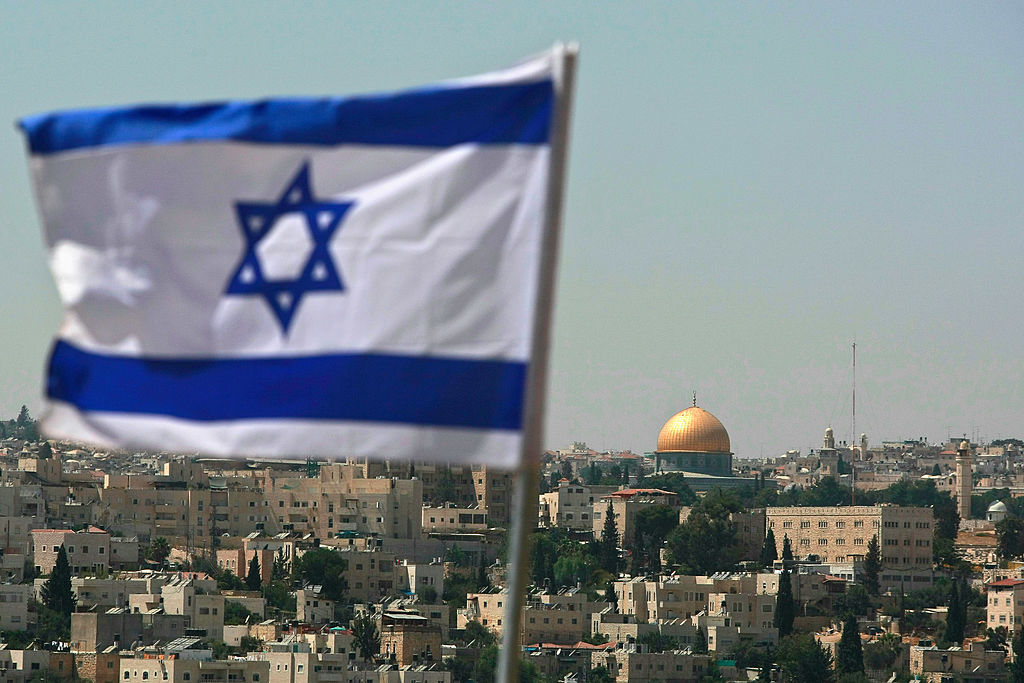Israel is marking 75 years of its existence in one of the most difficult peacetime periods the country has ever seen. Peacetime is a relative concept in the Middle East but the past six months have been extraordinarily trying for Israelis and their friends overseas. Benjamin Netanyahu returned to power 16 months after being ousted by an improbable coalition of left and right, secular and Islamist – everyone except the voters. But his comeback was only possible by doing a deal with the devil and bringing the far right into his government. Unsavoury allies like Itamar Ben-Gvir and Bezalel Smotrich, the Laurel and Hardy of Israeli ultranationalism, have proved comically inept in ministerial office but have also become more extreme with power.
The defining issue of Netanyahu’s latest term is a suite of judicial reforms designed to rein in Israel’s activist supreme court but which opponents say would undermine the judiciary. In a country with no constitution, the prospect of far-right ministers being able to legislate at will with fewer judicial checks spooked many Israelis. For the past four months, the Jewish state has regularly been brought to a standstill by street demonstrations of unprecedented size. Eventually, this forced Netanyahu to shelve the reforms but his opponents expect he will find other ways to weaken Israeli liberal norms.
These developments have only exacerbated troubling trends in how Israel is viewed internationally and in particular in the United States. In March, Gallup reported that, for the first time ever, more Democrats side with the Palestinians than the Israelis in the Middle East conflict. Polling published on Tuesday by the centre-left Brookings Institution showed one third of Americans consider Israel a segregated or apartheid state, one third deem it a flawed democracy, 16 per cent say it limits minority rights, while just one in five agree that it’s a vibrant democracy.
So there are plenty of reasons for Zionists to be gloomy on this, Israel’s 75th birthday, but there is one reason for optimism that outshines them all: Israel is 75. Israel was created; survived an immediate Arab effort to annihilate it; ingathered the survivors of the death camps; settled the land and built kibbutzim; struggled through the lean and lonely years; triumphed in the Six-Day War and reunited Jerusalem; pulled through the Yom Kippur War; endured two intifadas; rescued Beta Israel and welcomed the refuseniks; lost Yamit, lost Rabin, lost Gush Katif; made the desert bloom with fruits and microchips; and made peace with Arab nations. All of that in 75 years and, despite impossible odds, Israel lives yet.
Israel is a hard country and for many a hard country to love. It is flinty but whiny, eager for the world’s love but diplomatically tin-earred, unsentimental but gripped by existential angst. It is a country that adores its army and reveres military discipline but is so hectically informal that you wonder how it made it to 75 days, let alone 75 years. It also boasts the highest density of rude people in the known universe, although I find that strangely endearing. I have never loved Israel more than the time the manager of a Tel Aviv mini-mart yelled at me for a) not speaking Hebrew, b) being a foreign journalist, and c) coming in to shop when she was trying to watch TV. Only in Israel, the innovation nation, could they invent the inconvenience store.
But it is in its ruggedness that Israel’s beauty is to be found. It is a land of miracles and yet a deeply pragmatic country, a nation beset by threats and divisions but set one foot on the tarmac at Ben Gurion Airport and you understand instantly why people uproot their family and settle there. Some in the diaspora speak of Israel primarily in terms of a refuge, somewhere to go if things get bad again. They point to rising levels of anti-Semitism in the West and say it proves why Israel is needed.
Some Jews, especially older ones, speak of the suitcase. As Daniel Finkelstein puts it:
[M]ost of us Jews, wherever we are in the world, have a niggling feeling that perhaps it might be a good idea to keep a suitcase packed, and many of us have had, at least once, a conversation about where we would go if we had to.
I’m not Jewish. I can’t know what it’s like to feel this kind of precarity or comprehend how this would shape my view of Israel. But while Israel is a necessity, that is not all it is. Zionism is not only sovereignty for the sake of security but sovereignty for the sake of sovereignty. It is an assertion and realisation of Jewish national rights in the Jewish national homeland. When someone makes aliyah today, it is more likely because they feel or seek a connection to Israel than it is because they are fleeing persecution. They arrive not asking for refuge but to be part of Herzl’s living dream that is every day being willed into existence.
If Zionism is the theory, Israel is the practice and like all practical translations of idealism it is compromised, haphazard, sometimes unsightly, and occasionally disheartening. But that tension between Zionism and Israel, between ahavat and ha’aretz, is where the great debates take place and where the course of Jewish history can be set or changed. Israeli independence, as it reaches 75 years, is still a miraculous application of a mundane idea: Jewish self-determination.







Comments